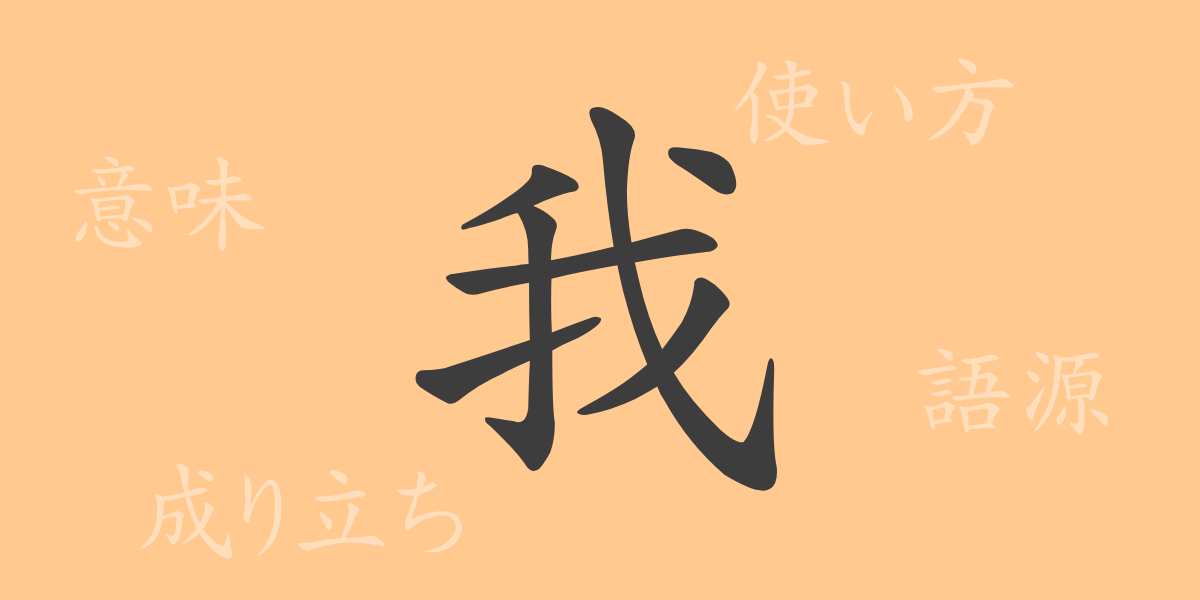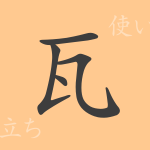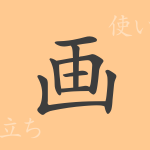In the rich tapestry of Japanese written culture, the kanji “我” (Wa) holds a particularly important place. This single character, which expresses an individual’s identity, frequently appears in our daily conversations and literary works. This article delves into the full picture of the kanji “我” (われ/wa), from its etymology to its meaning, usage, and even its appearance in idioms and common phrases. For those seeking a deeper understanding of Japanese, let’s unravel the world of this kanji together.
The Origins of 我 (Wa)
The kanji “我” (Wa) can be traced back to ancient Chinese texts. Its form in oracle bone and bronze inscriptions symbolized a person clad in weapons and armor. This represented the idea of protecting oneself, which later evolved to mean “self.” While the character “我” (Wa) has settled into its current form over time, its fundamental meaning has been consistently preserved.
The Meaning and Usage of 我 (Wa)
The kanji “我” (Wa) means “self” or “ego.” It is most commonly used as a first-person pronoun, but it is also employed to add emphasis, in literary expressions, and in philosophical discussions. While there are no humble or honorific forms, it is sometimes used in the same way as the word “私” (Watashi) when referring to oneself.
How to Read 我, Stroke Count, and Radical
The kanji “我” (Wa) also well represents the characteristics of the Japanese language in its readings and structure.
- Readings: The on’yomi (Chinese reading) is “が” (Ga), while the kun’yomi (Japanese reading) is “われ” (Wa-re) or “わ” (Wa).
- Stroke Count: A total of 7 strokes.
- Radical: 戈 (Ka-no-hoko).
Idioms, Common Phrases, and Proverbs Using 我 (Wa)
There are many idioms, common phrases, and proverbs in Japanese that include the kanji “我” (Wa). For instance, “我慢” (Gaman) means to endure or tolerate, while “我が家” (Waga-ya) refers to one’s own home. Additionally, “我田引水” (Gadeninsui) is a critical term used to describe actions that consider only one’s own benefits. These expressions reflect aspects of Japanese thought and culture.
Conclusion on 我 (Wa)
The kanji “我” (Wa) is a simple yet profound character representing the self. Its use in the Japanese language is incredibly broad, appearing in a wide array of contexts. This character, which originated in ancient China, has established a firm position as part of the Japanese identity and culture. The unique charm of “我” (Wa) will continue to be explored by learners of the Japanese language and those interested in its culture.

























